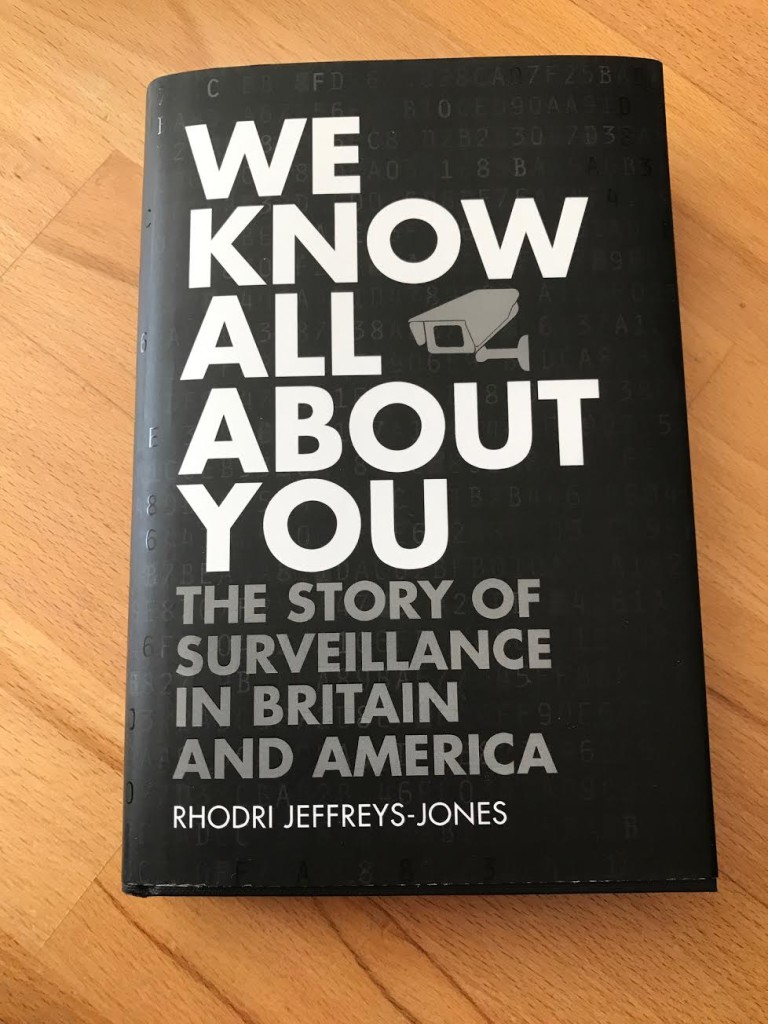 We Know All About You: The Story of Surveillance in Britain and America by Rhodri Jeffreys-Jones.
We Know All About You: The Story of Surveillance in Britain and America by Rhodri Jeffreys-Jones.
Privacy has become a big issue. Everything we do on the internet is tracked and even the NHS sells our records. We Know All About You is a book which charts the history of surveillance. From the first ID cards- given to slaves for passage- to McCarthyism and blacklists, and then Snowden and the NHS. A lot of it is shocking, if not surprising. The information of corporate blacklists that ruins workers lives is sad and damning. The real surprise comes from private surveillance however. I think most people are aware of times the government has abused its power, but private detectives and private video cameras are more popular than ever. In fact, most of the cameras around George Orwell’s home were put there by private citizens. Surveillance is bigger than ever before and it is mostly used to sell us something. It is all rather depressing and in my opinion there is no such thing as privacy anymore. We Know All About You is a brilliant and well-researched book. Entertaining and engaging, it tells the story of surveillance, a subject that could have been dull, in a compelling way. Highly recommended.
We Know All About You shows how bulk spying came of age in the nineteenth century, and supplies the first overarching narrative and interpretation of what has happened since, covering the agencies, programs, personalities, technology, leaks, criticisms and reform. Concentrating on America and Britain, it delves into the roles of credit agencies, private detectives, and phone-hacking journalists as well as government agencies like the NSA and GCHQ, and highlights malpractices such as the blacklist and illegal electronic interceptions. It demonstrates that several presidents – Franklin D. Roosevelt, Lyndon B. Johnson, Richard M. Nixon – conducted political surveillance, and how British agencies have been under a constant cloud of suspicion for similar reasons.
We Know All About You continues with an account of the 1970s leaks that revealed how the FBI and CIA kept tabs on anti-Vietnam War protestors, and assesses the reform impulse that began in America and spread to Britain. The end of the Cold War further undermined confidence in the need for surveillance, but it returned with a vengeance after 9/11. The book shows how reformers challenged that new expansionism, assesses the political effectiveness of the Snowden revelations, and offers an appraisal of legislative initiatives on both sides of the Atlantic.
Micro-stories and character sketches of individuals ranging from Pinkerton detective James McParlan to recent whisteblowers illuminate the book. We Know All About You confirms that governments have a record of abusing surveillance powers once granted, but emphasizes that problems arising from private sector surveillance have been particularly neglected.
We Know All About You: The Story of Surveillance in Britain and America is available here.
